Inside Lagos’s emerging, inclusive rave scene
Written by ABR on 24/01/2022
A Sweat It Out rave in Lagos typically gets hot at midnight, two hours after the time suggested on the flyer. But usually, by 9pm, ravers have already begun to trickle in, dressed in loose-fitting outfits and breathable clothing, ready to dance: baggy pants, sturdy sneakers, crop-tops, thigh-high shorts. Until the early hours of the morning, DJs play eclectic sets of afro-EDM.
At first, Ebi Atte and Ejiro Otito, the organisers of Sweat It Out, used to host their raves at HFactor, a famous gathering space for Lagos creatives set in an old colonial building in Lagos Island, a more affluent corner of the city. But as attendance has grown, they’ve had to move to a bigger space. Now, their parties take place in a larger studio in Lekki, just next to the sea.
This expansion proves that Nigeria’s electronic music scene is growing, its influence moving inwards from the fringes to become one of the most diverse subcultures among Nigerian youth.
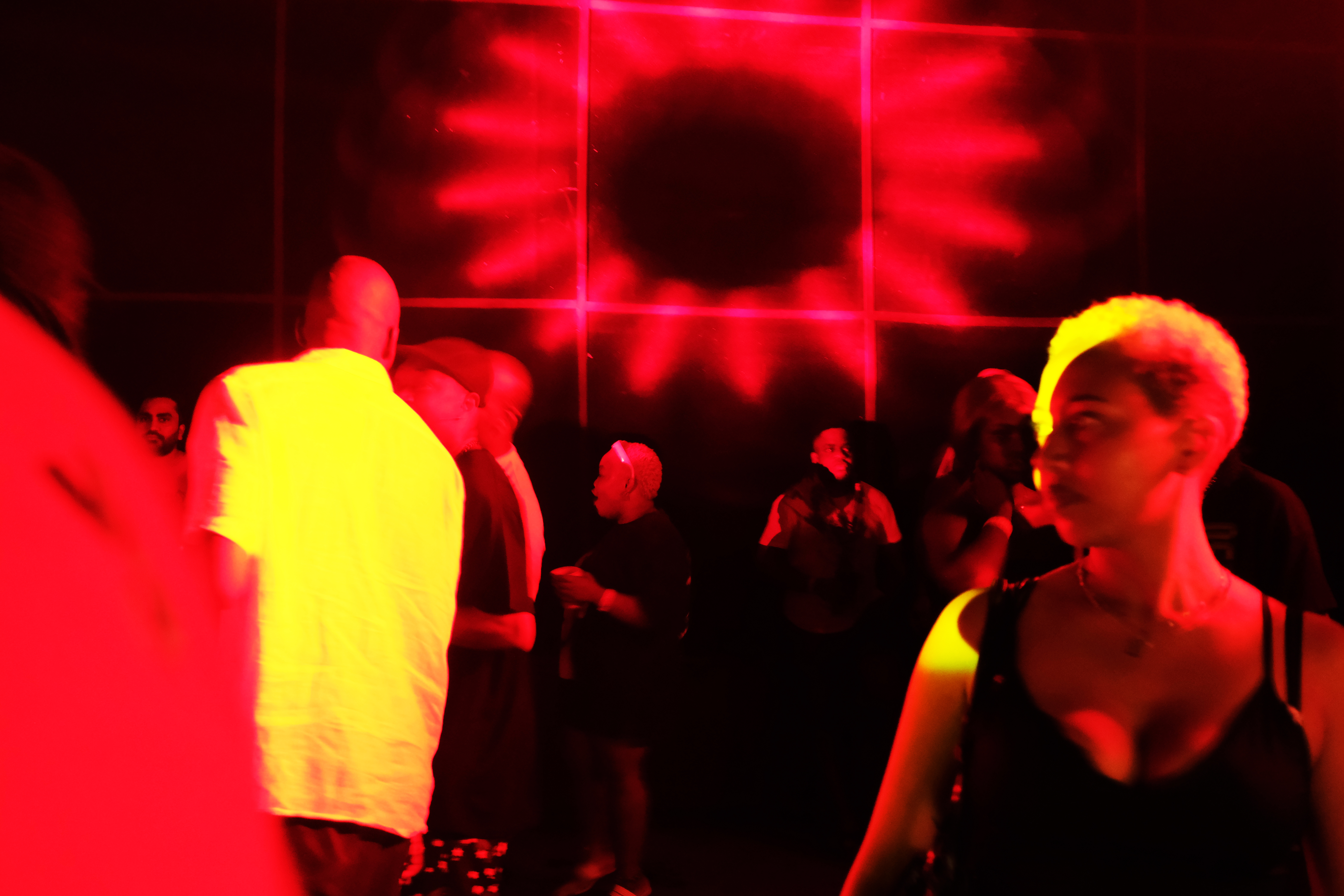
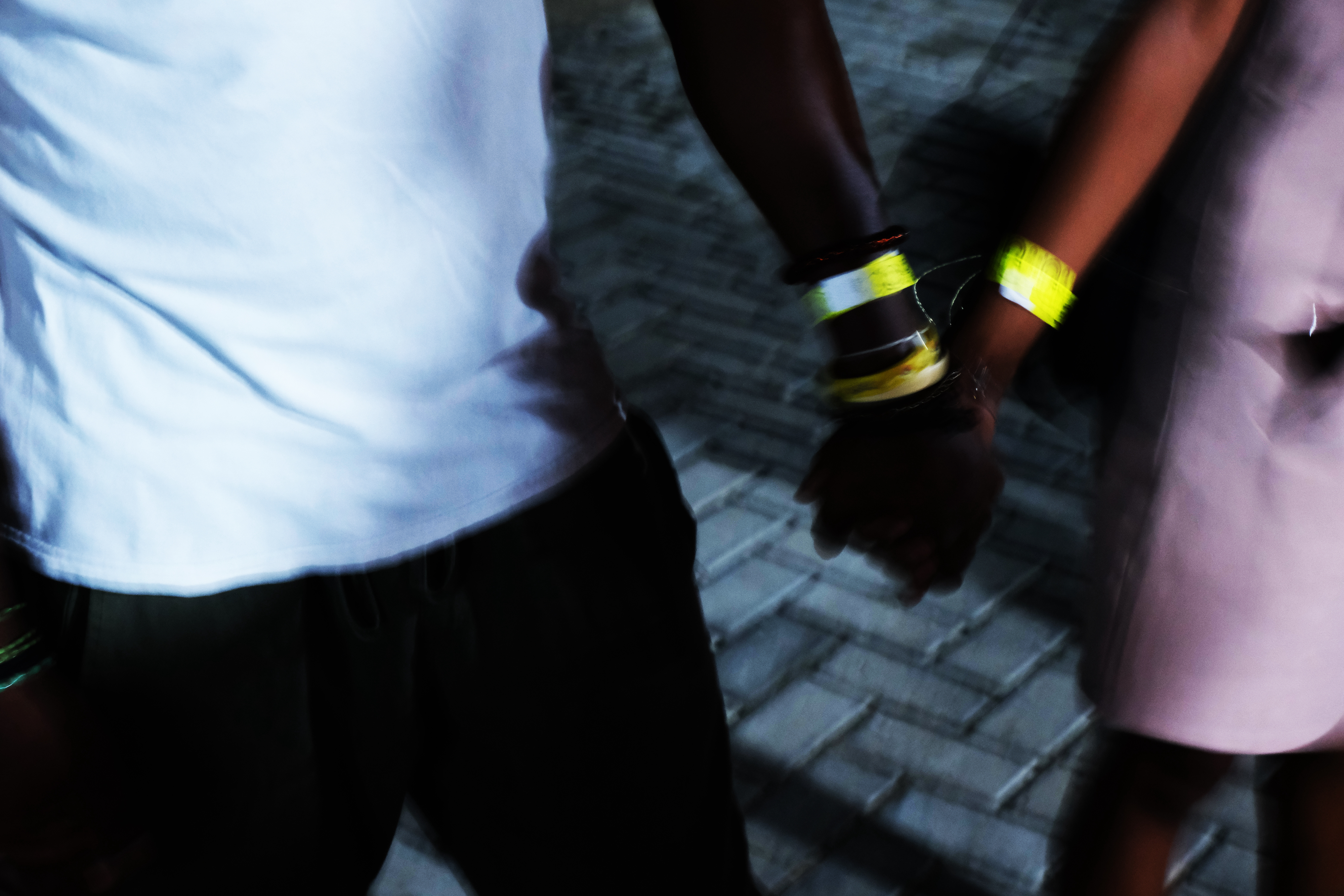
“There are about four to five major nights for people to go out and listen to electronic music, all kinda different concepts, but that’s the joy of it,” Ebi says. “What we found early on was that people were throwing a lot of private parties, 20-30 invites. But since the pandemic, parties are now more open to outsiders. The scene is definitely on an upward trajectory.”
The emergence of a healthy EDM scene can partly be attributed to the radical cultural shift young Nigerians are living through right now. The rise of Alté identities over the past few years — a once-fringe movement that celebrates and embraces an ambiguous an individual approach to self-expression — flies in the face of Nigeria’s extreme conservatism. Of course, the borderlessness of social media has also added to this, giving marginalised identities in the country – queer folks and women especially – the opportunity to safely organise events and curate virtual communities.
The End SARS protests two years ago, which ignited a passion for defying oppressive government systems, also play a part in this new movement thriving. The protests, which were organised first on social media before spilling onto the streets and towns across Nigeria, started to fight back against police brutality and indiscriminate profiling (usually based on how expressive a person’s outfit is). “Younger Nigerians have become more outspoken about what they want and want they don’t like,” Ebi says. “I guess just being in a rave provides a certain level of rebellion and defiance, on a smaller scale at least.”
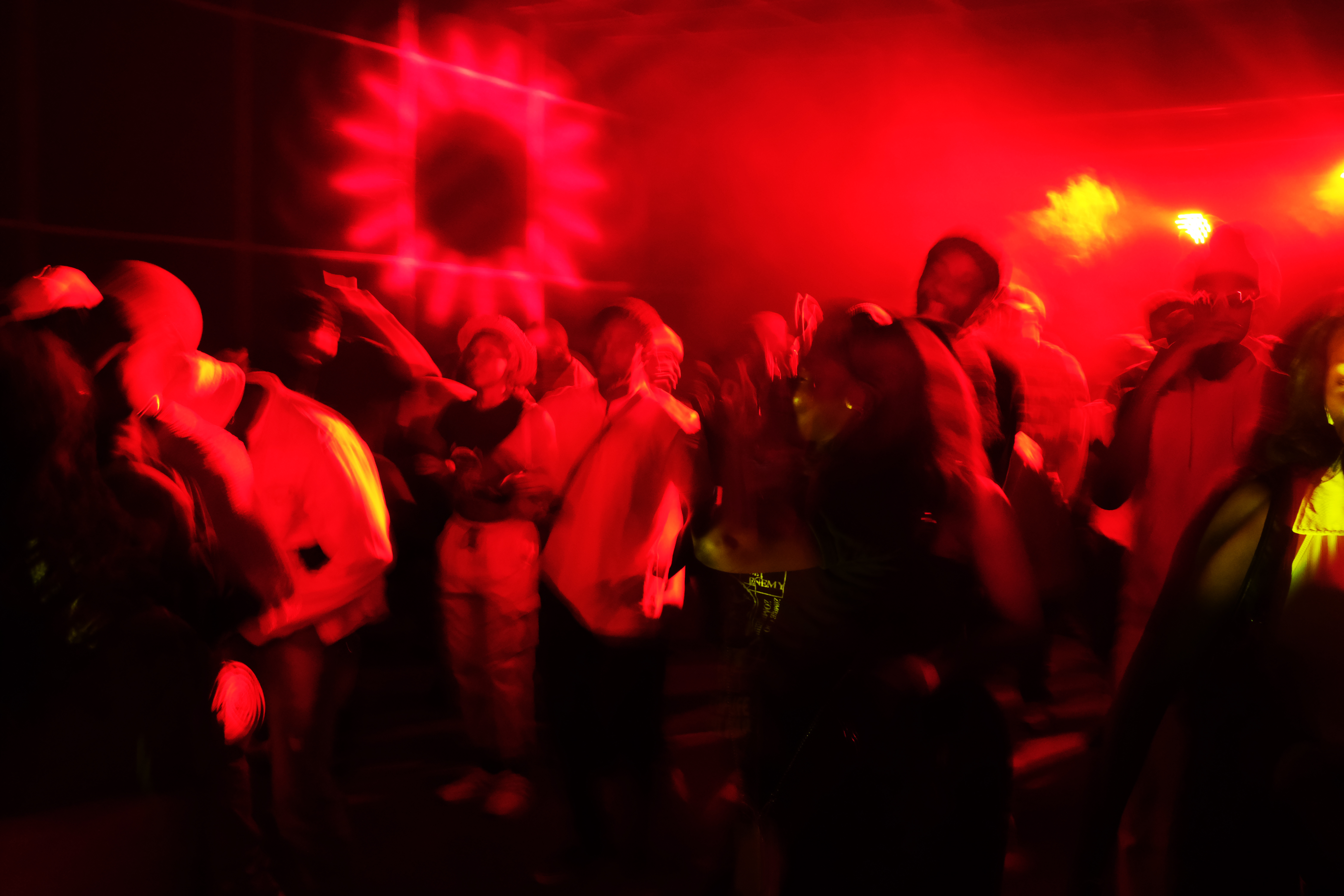
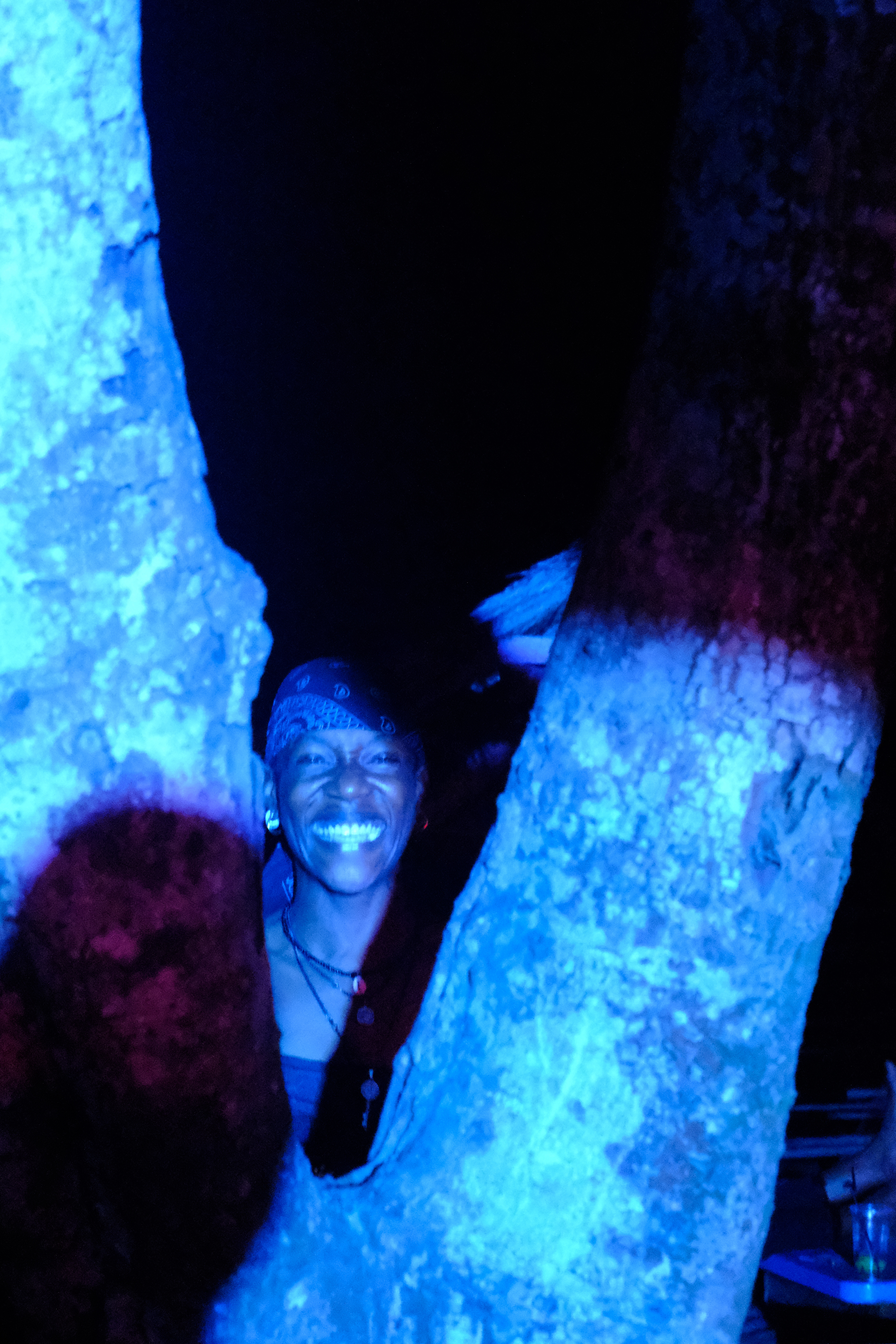
Ebi, who DJs and works as a research analyst when not organising parties, started Sweat It Out as a private gathering in 2019. He first got the idea during his time at university in the UK, when he’d come home to Nigeria during breaks but couldn’t find the right places to party. At the time, “we didn’t have anywhere to go to when we wanted to dance to electronic music,” he says, and so, when he could, he and a friend set up spaces that would platform local electronic music DJs.
25-year-old creative director Aaron Ahalu is one of the many young Nigerians for whom spaces like Sweat It Out and other raves – Ekolectro, Element House – provide sanctuary and community. “The first real EDM party I ever attended was Sweat It Out in March 2021, right after I had moved back to Lagos from Abuja,” he says. “It was the first party I saw the digital flyer for and wanted to go to.” The invite specified: ‘strictly electronic’. “That intrigued me,” he says. “The next thing I know, I’m a raver.”
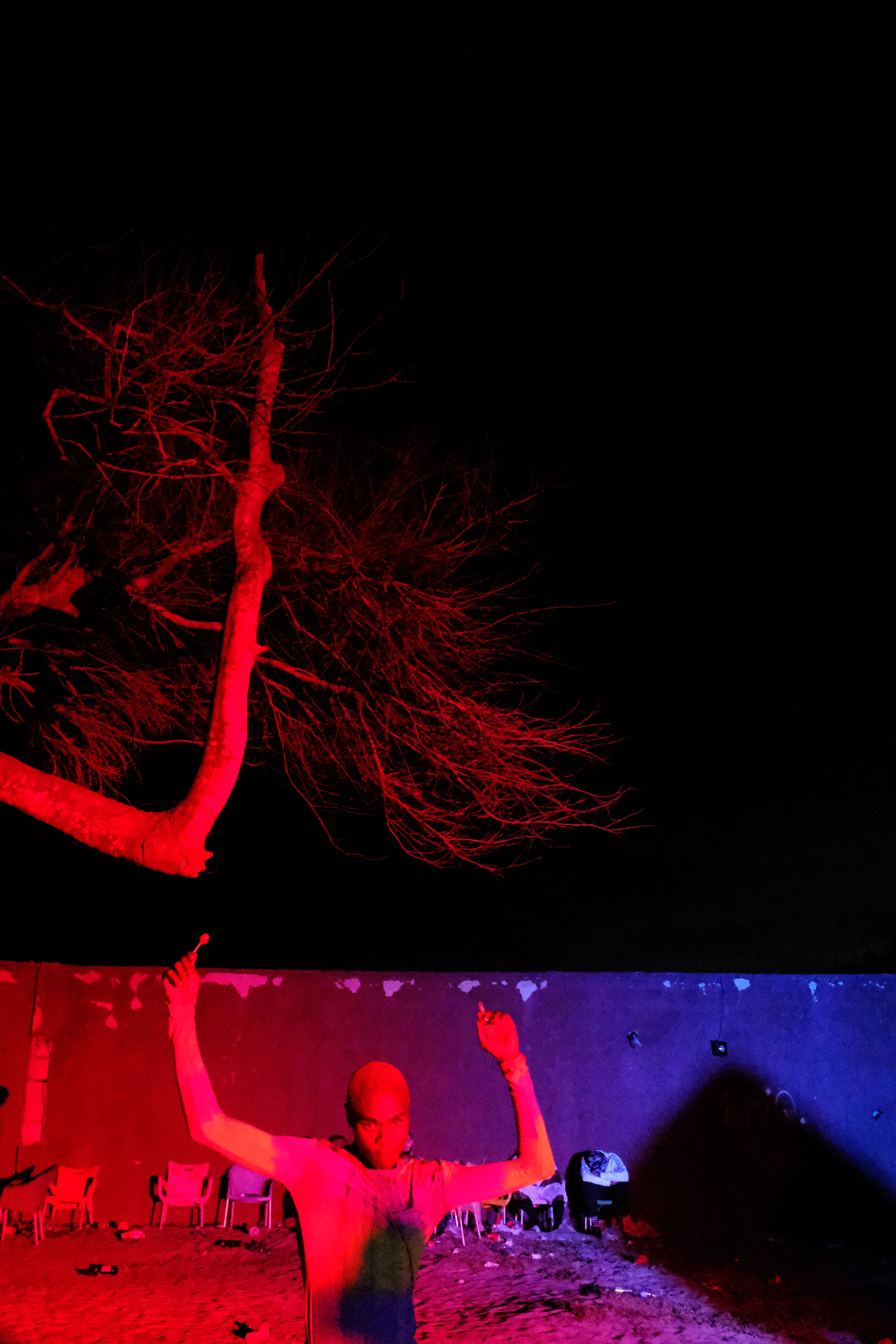
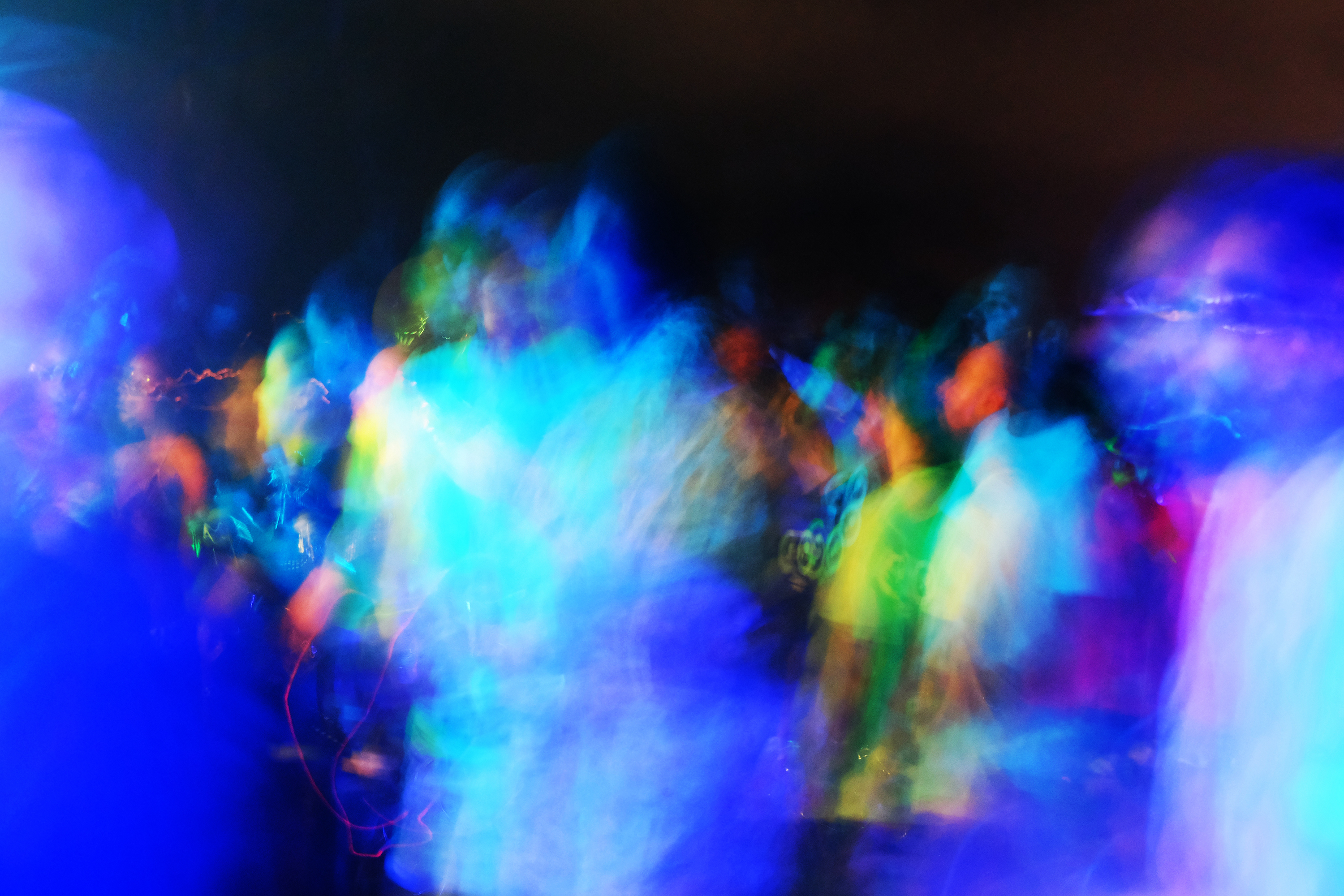
For neurodiversity advocate Adedoja Duroshola, the rave scene means much more to her than just music and dance. “Raves are where I go to exalt the God within,” she says. “Movement is a very important part of my spirituality. I purify my being with the energy at raves. I’m able to dance in a way that’s not contrived. I’m able to see my friends, recharge, have after-parties where we just talk about life.”
And in truth, Nigeria’s rave scene is shaping itself into a safe space for people for whom party spaces are usually not designed with them in mind. Rave organisers like Ebi make it a duty to curate spaces that are inclusive. Sweat It Out ensures the inclusion and safety of LGBT+ Nigerians by having queer folks on the organising team and hosting its parties in safe locations. The organisers strive to ensure that these spaces are harassment-free for women. “The music that we play has its origins in freedom and safety, so we are very serious [when] banning and picking out people that don’t adhere to the vibe of free space,” Ebi says.
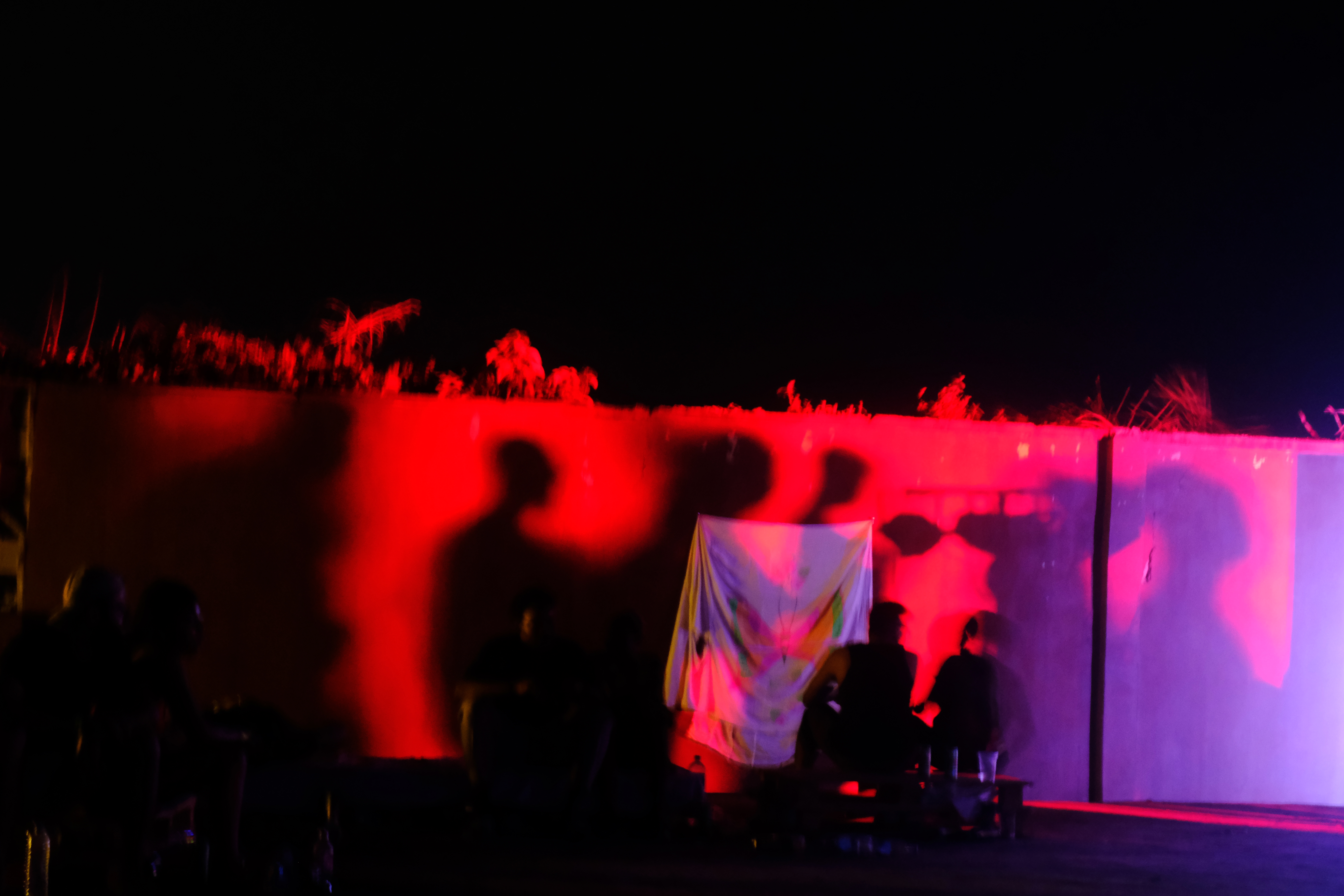
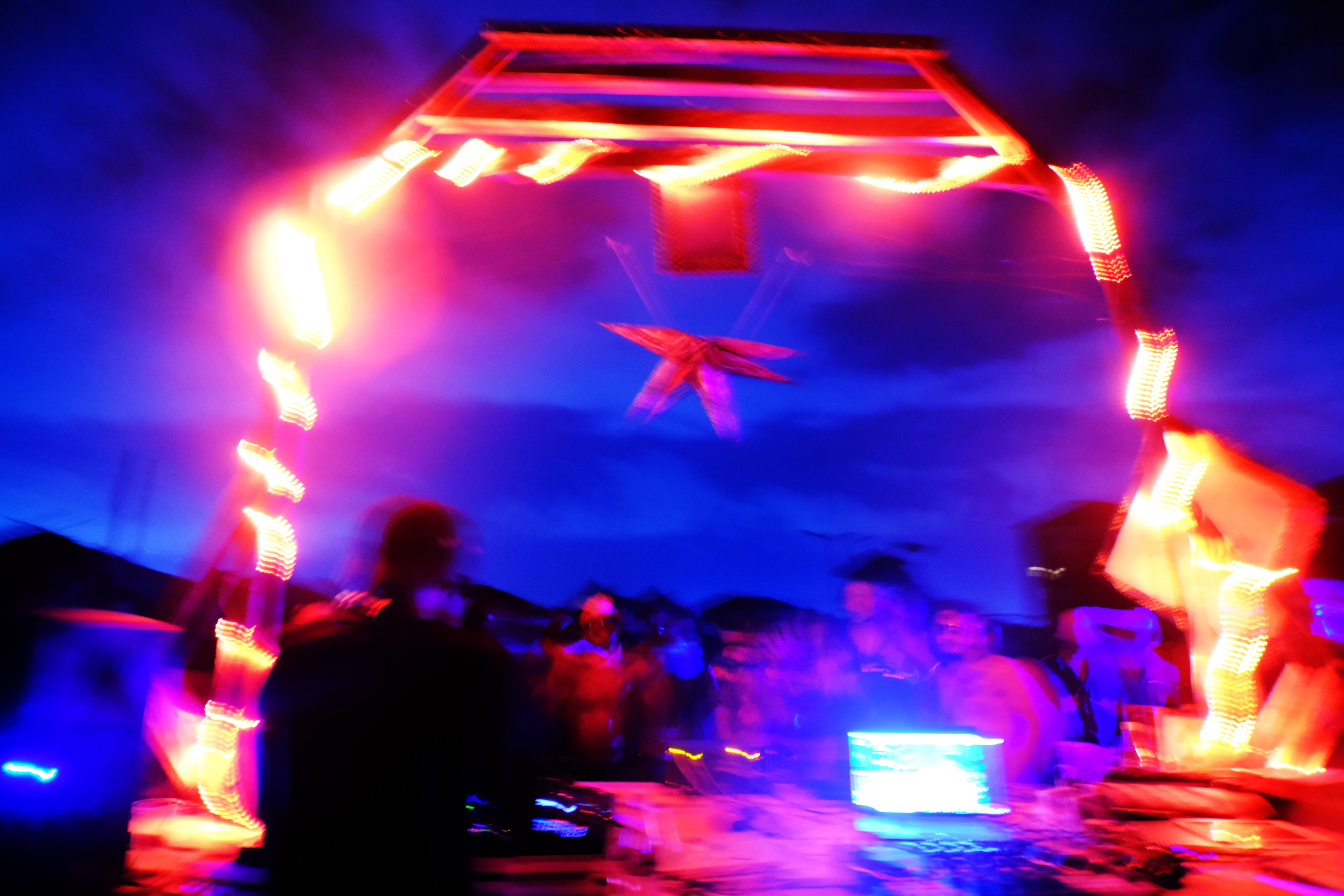
Delnoi Otsemobor, a DJ, event organiser, and founder of Real House Heads of Lagos, believes that the EDM scene in Nigeria will “only get bigger” in future, citing the huge population and growing enthusiasm for the music and the culture of inclusivity it breeds. Perhaps then, the sounds of its pioneering artists will extend far beyond Lagos too. “Based on the fact that Afrobeats has shot to the forefront of the global charts, I know very soon Nigeria will be creating waves in Afro-House, EDM, deep house, minimal, tech, trance, gabba, DnB, soulful house,” Ekiti Sound adds. “I am confident that we shall be in all those spaces displaying our ethnicity proudly.”
At the heart of it all, the mission is to ensure that the EDM scene remains accommodating. Rave attendees like Adedoja are hoping that Nigerian raves will have a ripple effect in Nigerian youth culture. “[People] can come to be their most authentic self without fear of judgement,” she says, “to feel validated in the fact that they are among empathetic people, and have a really great time.”
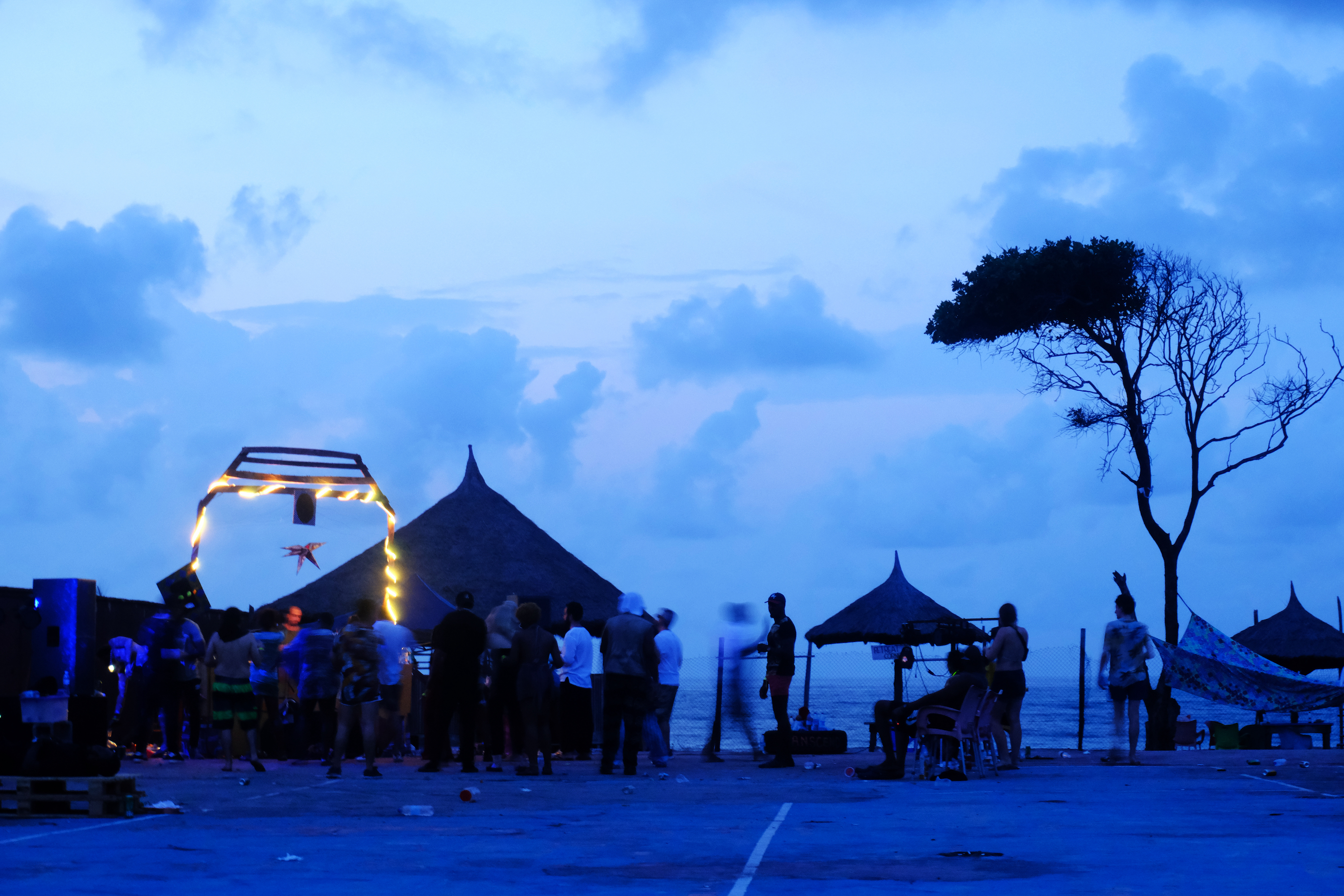
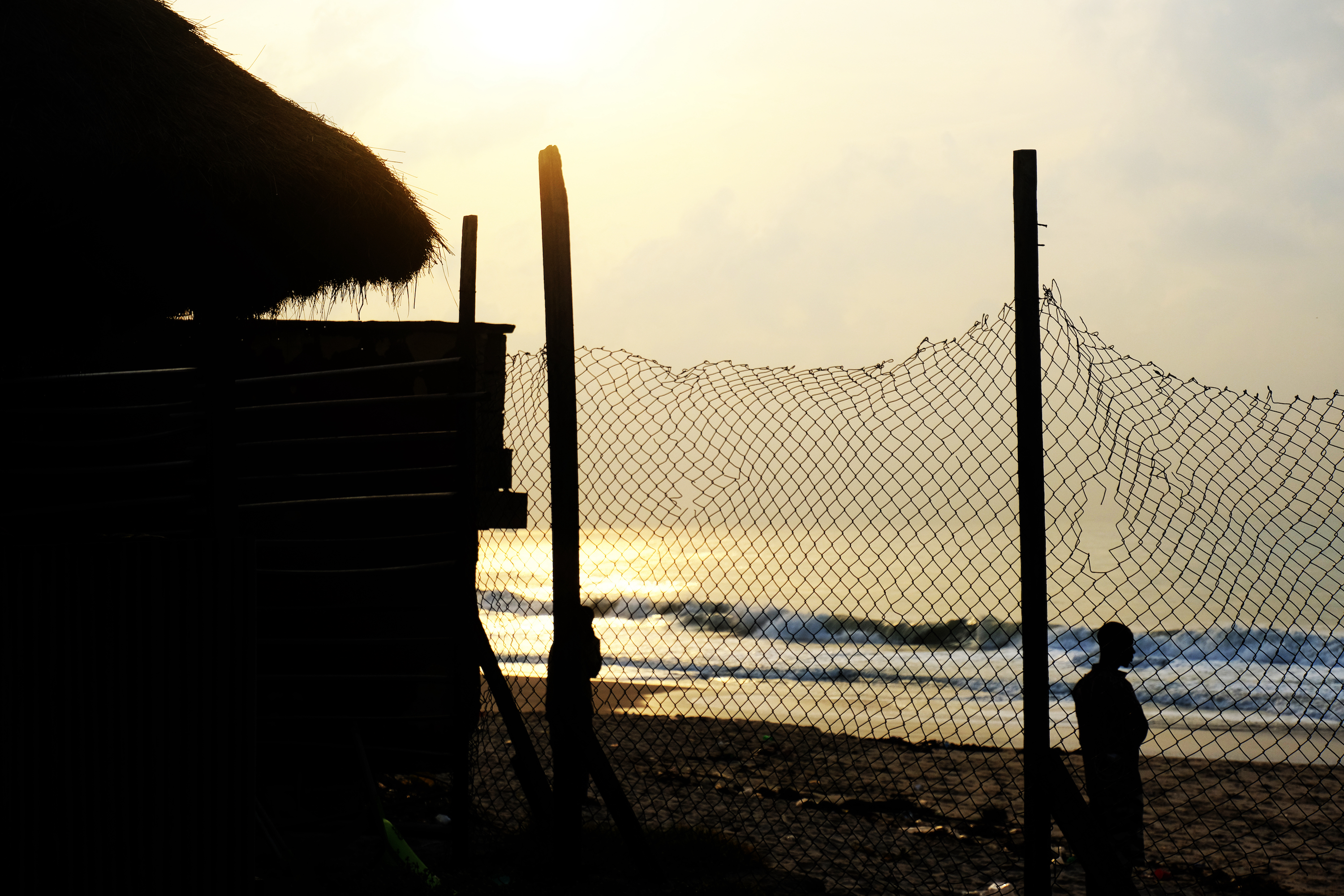
Follow i-D on Instagram and TikTok for more on Nigerian youth clture.
Credits
Photography Logor



 ABR Group
ABR Group